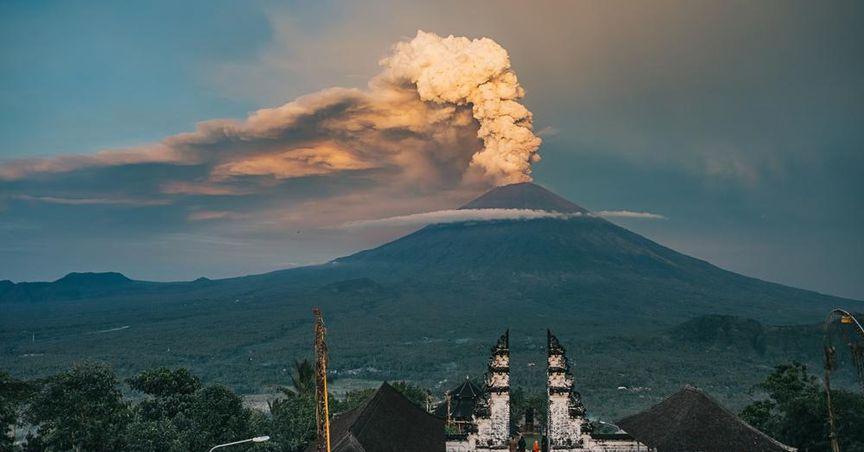A scheduled Air India flight from Delhi to Bali had to turn back mid-route on Wednesday following a volcanic eruption near Bali’s airport, resulting in widespread disruption of air travel to the Indonesian island. The eruption impacted several other international flights, causing significant travel delays across the region.
According to a statement from Air India, flight AI2145, operating on June 18, was instructed to return to Delhi after reports confirmed volcanic activity close to its destination. Prioritising passenger safety, the aircraft landed back in Delhi without incident. The airline arranged hotel accommodations for all travellers and offered full refunds or complimentary rebooking options.
The volcanic activity originated from Mount Lewotobi Laki-laki, situated in Indonesia’s East Nusa Tenggara province. On Tuesday, the volcano expelled a thick ash cloud reaching up to eleven kilometres into the atmosphere. The following morning, further eruptions emitted ash plumes about one kilometre high. In response, Indonesia's volcanology agency elevated the alert status to its maximum level.
Travel operations across multiple countries were affected. The Bali international airport’s live update page showed numerous cancellations of flights arriving from India, Singapore, and Australia. Singapore Airlines halted four of its services between Denpasar and Singapore, while Scoot suspended flights to both Bali and Lombok.
JetStar, the budget airline affiliated with Qantas, cancelled several morning flights departing from Australia to Bali. The airline advised travellers that while further delays were possible, meteorological forecasts suggested an improvement in ash conditions by the end of the day.
Additional safety measures included the closure of Fransiskus Xaverius Seda airport in Maumere, scheduled to remain shut through Thursday. The decision was confirmed in a public announcement by AirNav, Indonesia’s air navigation service provider.
Local authorities responded swiftly to the crisis. Evacuation orders were implemented for residents of two villages situated near the volcano. The affected areas experienced dense ash fallout, covering streets with volcanic debris. Emergency officials reported no injuries, despite the extent of disruption. Mount Lewotobi Laki-laki had last erupted in May.
Indonesia, located on the Pacific Ring of Fire, frequently experiences volcanic and seismic events due to its tectonic plate positioning.




_09_03_2024_01_03_36_873870.jpg)

